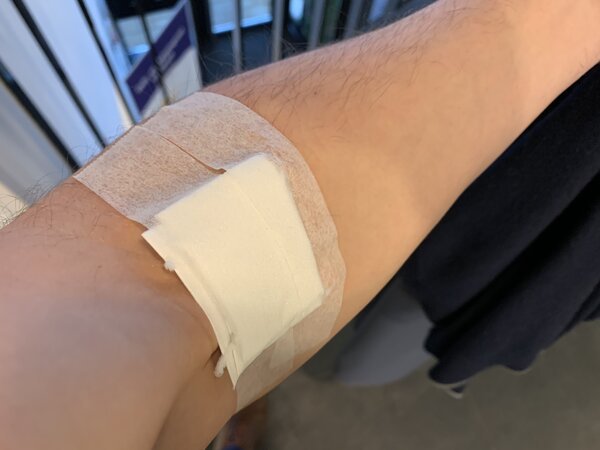Jan. 28, 2020
Measuring cholesterol levels in blood
Know your LDL, HDL and Triglyceride numbers
This week I went to my doctor to have my blood examined, to determine my cholesterol levels. Over the past years I have been paying more and more attention to my health. After improving my lifestyle considerably, I wondered what my numbers were.
What is cholesterol?
Cholesterol is a fat-like, waxy substance in your blood. Your body makes cholesterol in the liver. If you eat food from animals, like meat or dairy products, you'll receive more cholesterol than your body needs.
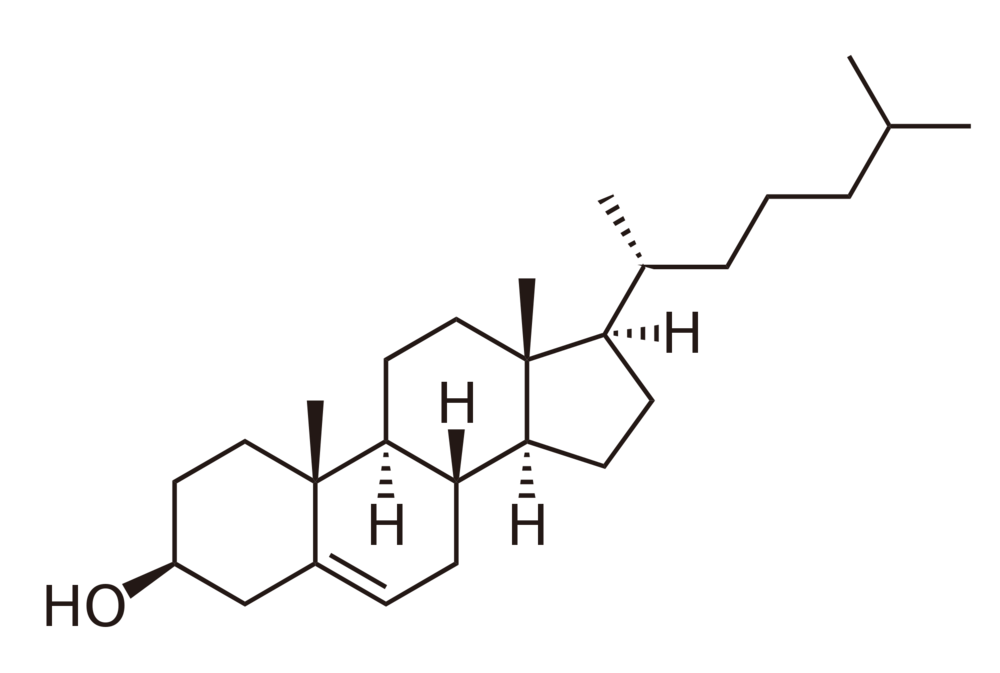
If you have too much cholesterol in your body, it can build up in the walls of your arteries. This is called 'plaque' and it can eventually harden, a process called atherosclerosis. This causes your arteries to become narrower, making it harder for blood to flow through your vessels.
The problem with too much cholesterol is that you won't notice it until you run into (serious) problems, like severe chest pain and heart attacks. Obviously, it's better not to wait for this and to take notion now!
Cholesterol Test
Testing your cholesterol levels is best done through your doctor's office. They'll provide a standardised blood test (called a "lipid panel") that measures:
- Low-density lipoproteins (LDL): This is considered the 'bad cholesterol' as it causes the plaque build-up.
- High-density lipoproteins (HDL): This is considered to be the 'good cholesterol' as it transports bad cholesterol from the blood to the liver where it is sifted out.
- Triglycerides: These are the end product of digesting and breaking down fats in food. They are used to give energy to your body. They are stored in different places in case they are needed later.
Before having your blood drawn, you'll need to fast for 9 to 12 hours. This reduces the direct influence of food on the contents of your blood stream, providing a cleaner and easier to compare measurement.
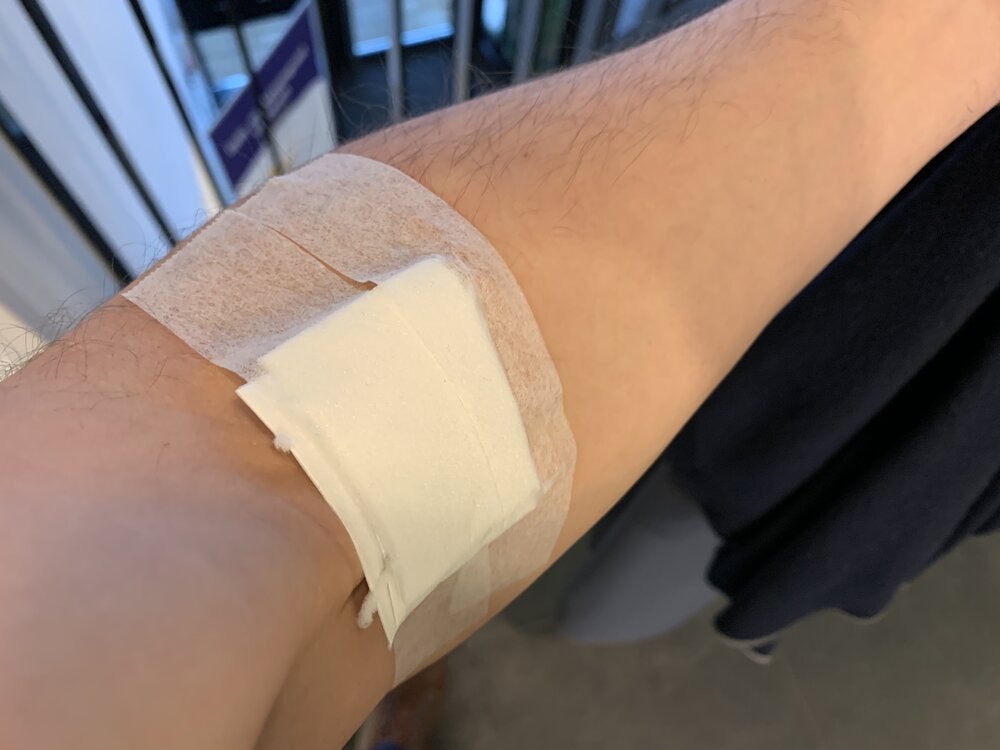
Results
After taking the blood test, the sample is send to the laboratory for analyses. This will result in a lipid profile that includes your levels of HDL, LDL, triglycerides and total cholesterol.
In addition, my doctor's office also included blood sugar in my test. It is another indicator for cardiovascular risk, linked to diabetes.
Reference values
According to the Dutch Heart Foundation (Hartstichting) the following values are considered good:
- total cholesterol: preferably lower than 5.0 mmol/l
- LDL cholesterol: preferably lower than 3.0 mmol/l
- HDL cholesterol: should be higher than 1.0 mmol/l for men, 1.2 mmol/l for women
- Triglycerides: preferably lower than 1.7 mmol/l
According to the Dutch Diabetes Foundation (Diabetesfonds), the following glucose levels, measured after fasting, are considered reference points:
- Lower than 6.1 mmol/l: no diabetes
- Between 6.1 and 6.9 mmol/l: pre diabetes
- More than 6.9 mmol/l: diabetes
My Results
About two weeks after drawing blood my results where available. I called the doctors's office and received the following values:
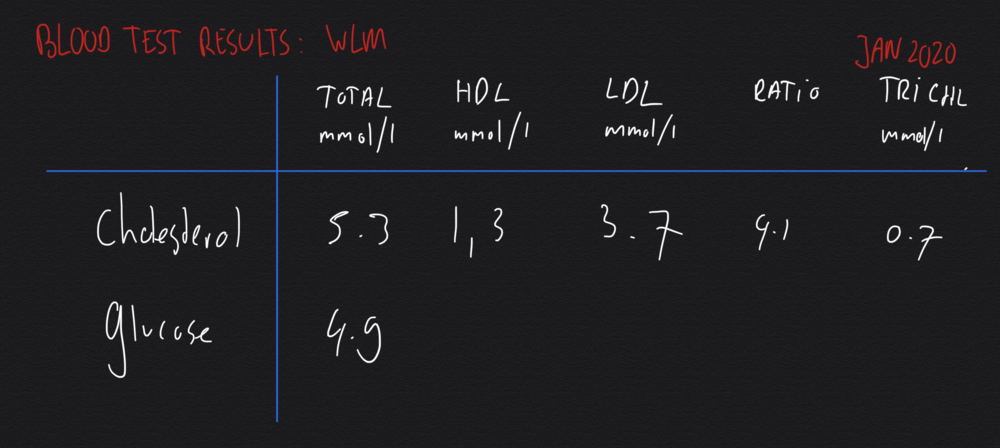
As you can see, my total cholesterol and LDL cholesterol (the bad one) are considered to be too high. The other values are (very) good. Without feeling something, my cholesterol is too high.
Conclusion
Have your blood tested, know your numbers. It's the only way to know where you are. Whatever the results may be, it should rarely be a reason for panic - especially when you are younger. Although my cholesterol is still slightly too high, I know that it must have been much worse considering my old habits.
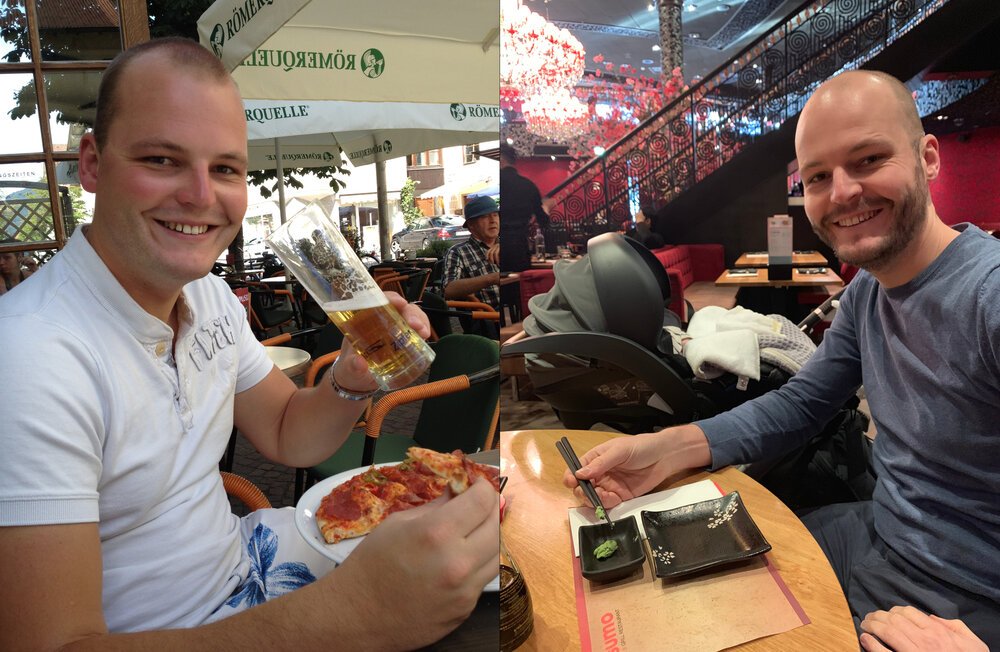
Over the past few years I changed my lifestyle considerably, taking much more care for my body. I feel better than before. I lost over 25KG and my physical condition continues to improve. Treat your body well, don't wait until it's too late!
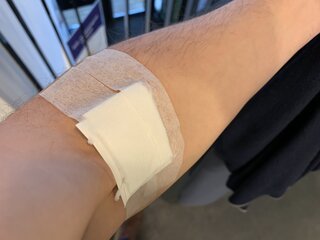
Download
If you enjoy reading offline, this article is available for download:
Translations
This article is available in the following languages:
RSS / Atom
Grab one of the feeds to stay up to date, the feeds contain the full posts:
